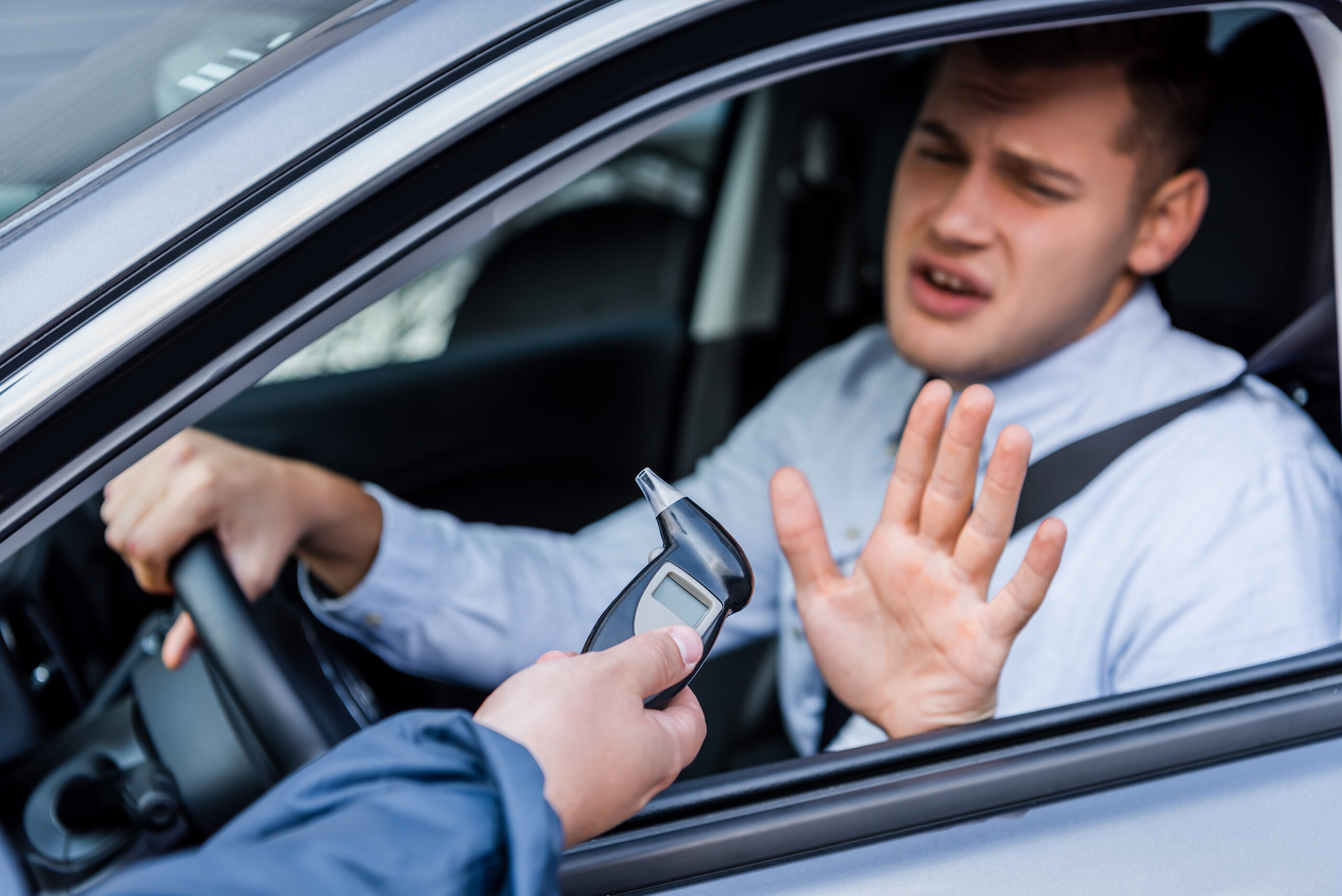
You’re out with friends, enjoying a night of laughter and good times. The music is blaring, and the drinks keep flowing. You feel invincible, unaware of the consequences that lurk in the shadows. Then it happens—a blue and red flash illuminates the night, and your heart skips a beat. You’ve been pulled over for driving under the influence (DUI). In an instant, your world can turn upside down. But is DUI something you should be concerned about? Does this mean you require addiction treatment? What do the Georgia laws say?
In this article, we’ll put those questions to rest.
What is DUI?
DUI is a criminal charge that arises when an individual operates a vehicle with a blood alcohol concentration (BAC) above the legal limit, typically 0.08% in most jurisdictions. However, the impairment can occur at lower BAC levels, especially for inexperienced or sensitive individuals. In addition to alcohol, DUI charges may involve driving under the influence of illegal drugs, prescription medications, or over-the-counter substances diminishing your driving ability.
Is a DUI Charge a Sign of Alcohol Addiction?
While a DUI charge does not necessarily indicate alcohol addiction, it can be a warning sign. Repeated instances of driving under the influence suggest a problematic relationship with alcohol, which may require further examination. Addiction is characterized by a compulsive need for alcohol, leading to an inability to control or limit consumption. If you find yourself repeatedly facing DUI charges, it is essential to assess your alcohol consumption patterns and consider seeking help if you suspect a dependency.
The Need for Addiction Recovery
So, you’ve been hit with a DUI charge, and your mind is racing with a million thoughts. Does this mean you’re addicted to alcohol?
Not necessarily. While a DUI charge can be an alarming wake-up call, it doesn’t automatically mean you’re battling alcohol addiction. It’s like getting a flat tire, but it doesn’t mean your entire vehicle is falling apart.
A DUI charge simply indicates that alcohol was a factor in the incident. It doesn’t delve into the complexities of addiction. People can make reckless decisions under the influence without necessarily being dependent on alcohol.
But let’s not dismiss the importance of this moment. You could use this opportunity to evaluate your relationship with alcohol and consider addiction recovery. Take a step back, look in the rearview mirror of your life, and assess your relationship with alcohol. Are there signs of a deeper issue? Do you find yourself craving a drink more often than not? Are you unable to stop once you start? How many DUIs have you previously received? These could be indicators of alcohol addiction.
Even if you do not meet the criteria for alcohol addiction, addressing problematic drinking behaviors is necessary to prevent further legal consequences and protect your well-being. Seeking professional help can provide valuable guidance and support during the recovery process. These resources can assist in understanding the underlying reasons for excessive drinking and developing healthier coping mechanisms.
Different DUI Charges in Georgia
In Georgia, DUI charges are categorized based on factors such as BAC level, prior convictions, and certain aggravating circumstances. The penalties become increasingly severe with each subsequent offense. The charges in Georgia are as follows:
-
- DUI Less Safe: This charge applies when a driver’s ability to operate a vehicle is hindered by alcohol or drugs, regardless of the BAC level.
-
- DUI Per Se: This charge is based on a 0.08% or higher BAC. It focuses on the objective measurement of impairment through the BAC level.
-
- DUI Prescription Drugs: Operating a vehicle under the influence of prescription drugs, even with a valid prescription, can lead to a DUI charge if it compromises driving ability.
-
- Aggravated DUI: This charge involves driving under the influence with aggravating factors, such as excessive speed, causing accidents, having a BAC above 0.15%, or traveling with a child while impaired.
DUI Laws in Georgia
Georgia only has one law for DUI offenses: “driving under the influence” of alcohol, drugs, or other intoxicating substances. It is considered a DUI if you operate a vehicle or have actual physical control of a moving vehicle while under the influence. Also, Georgia law provides clear definitions and criteria for determining intoxication in these cases. These are:
-
- You’re impaired by alcohol to the point where driving is unsafe
-
- Any drug impairs you to the point where it is unsafe to drive.
-
- You intentionally inhale glue, aerosol, or any other toxic vapor to the point where driving is unsafe.
-
- You’re impaired by a combination of alcohol, drugs, or toxic substances to the point where driving is unsafe.
-
- You have a blood alcohol concentration (BAC) of 0.08 grams or higher within three hours of driving or being in control of a vehicle. For drivers under 21 years old, the limit is 0.02 BAC, and for commercial vehicle drivers, it is 0.04 BAC.
-
- You have marijuana or a controlled substance in your blood or urine.
DUI offenses in Georgia are generally treated as misdemeanors, except in specific cases. These exceptions occur when a driver has two or more prior DUI convictions within the last decade, attempts to evade law enforcement, or causes serious harm or fatality to another person or unborn fetus.
Even though most DUI offenses are classified as misdemeanors, they still entail a minimum mandatory jail term of at least 24 hours. Here are the penalties for the first three DUI offenses in Georgia:
First DUI Offense:
-
- Minimum 24 hours in jail (with the possibility of up to one year)
-
- Fine ranging from $300 to $1,000
-
- Driver’s license suspension for a minimum of one year (with the possibility of a limited driving permit after 120 days)
Second DUI Offense:
-
- Minimum 72 hours in jail (with the possibility of up to one year)
-
- Fine ranging from $600 to $1,000
-
- Driver’s license suspension for a minimum of three years (with the possibility of a limited driving permit after 18 months)
Third DUI Offense:
-
- Minimum 15 days in jail (with the possibility of up to one year)
-
- A fine ranging from $1,000 to $5,000
-
- Driver’s license suspension for a minimum of five years (with the possibility of a limited driving permit after two years)
Impact of Alcohol on Daily Life and Making Lifestyle Changes
Alcohol abuse can have a detrimental impact on various aspects of daily life. It can strain personal relationships, hinder professional growth, damage physical and mental health, and create legal issues. Recognizing the need for change is the first step toward making positive lifestyle adjustments. Here are some practical strategies to consider:
Set boundaries
Excessive drinking can have detrimental effects on both your physical and mental well-being. By setting boundaries, you take control of your actions and make a conscious decision to prioritize your health. Avoid situations or environments that may trigger excessive drinking, and surround yourself with people who respect and support your choices. It’s okay to say no if you feel uncomfortable or know it will compromise your progress.
Develop healthy habits
Taking care of your physical and mental well-being is essential when coping with drinking. Regular exercise not only improves your physical health but also releases endorphins that boost your mood and reduce stress. Maintaining a balanced diet gives your body the necessary nutrients to function optimally, supporting overall well-being. Additionally, prioritize self-care activities that bring you joy and relaxation. These small acts of self-care distract you from cravings or triggers, providing a healthy outlet for stress and emotions; thus helping you to manage them more effectively.
Explore alternative coping mechanisms
Instead of turning to excessive drinking, explore healthier ways to manage stress and cope with difficult emotions. Mindfulness practices, such as meditation or deep breathing exercises, can help you stay present and calm amidst challenging situations. Moreover, engaging in hobbies or activities, you enjoy can provide a sense of fulfillment and distraction from stressors. Numerous healthy outlets are available; you just have to find what works best for you.
Seek support
During challenging times, reaching out to the people who care about you can make a world of difference. Be it friends, family members, or professionals, they can provide a listening ear and help you navigate through difficult emotions. Knowing that there are people who have your back can provide a sense of comfort and reassurance, preventing you from feeling emotions that lead you to drink. So don’t hesitate to lean on your loved ones or seek professional help. Remember, you don’t have to face it all alone.
At Georgia Addiction Treatment Center, our experienced staff is ready to support you on the path to recovery. Everyone’s journey is unique, so we tailor our programs to your needs. Choosing to quit alcohol can truly save your life, and we hope to help you on this journey! To contact us, give us a call at 855.952.3546. Remember, you deserve a life filled with hope and healing!





